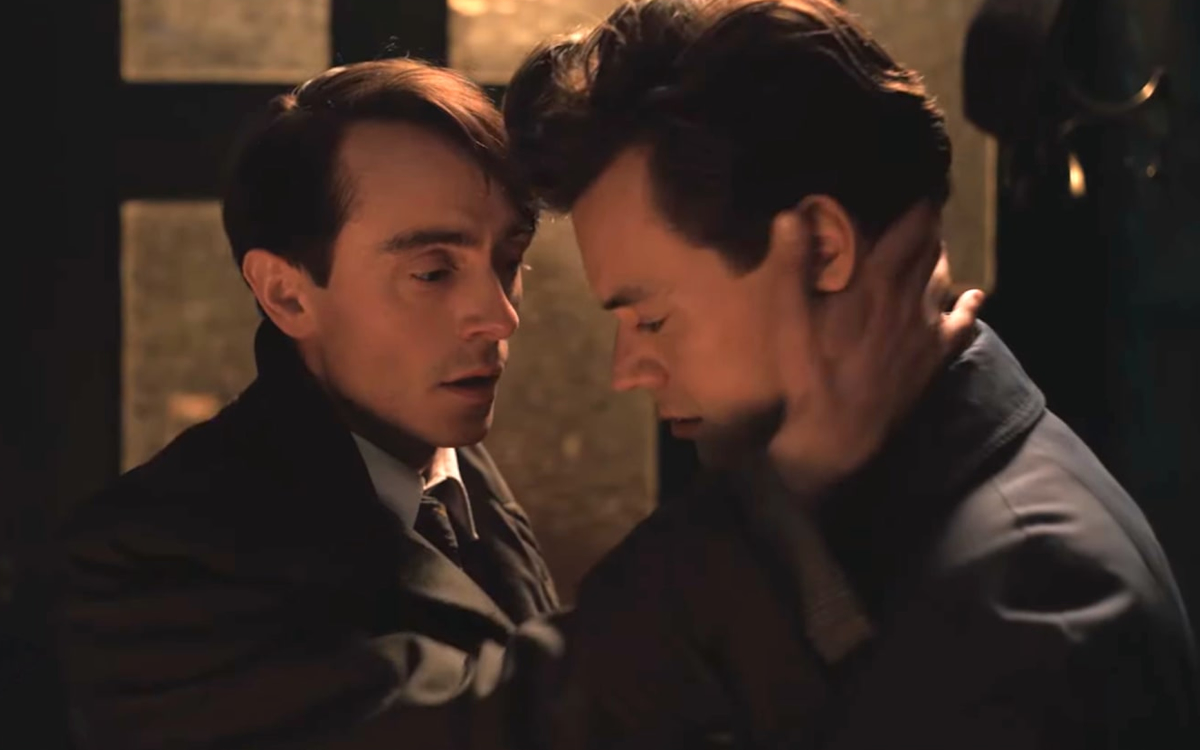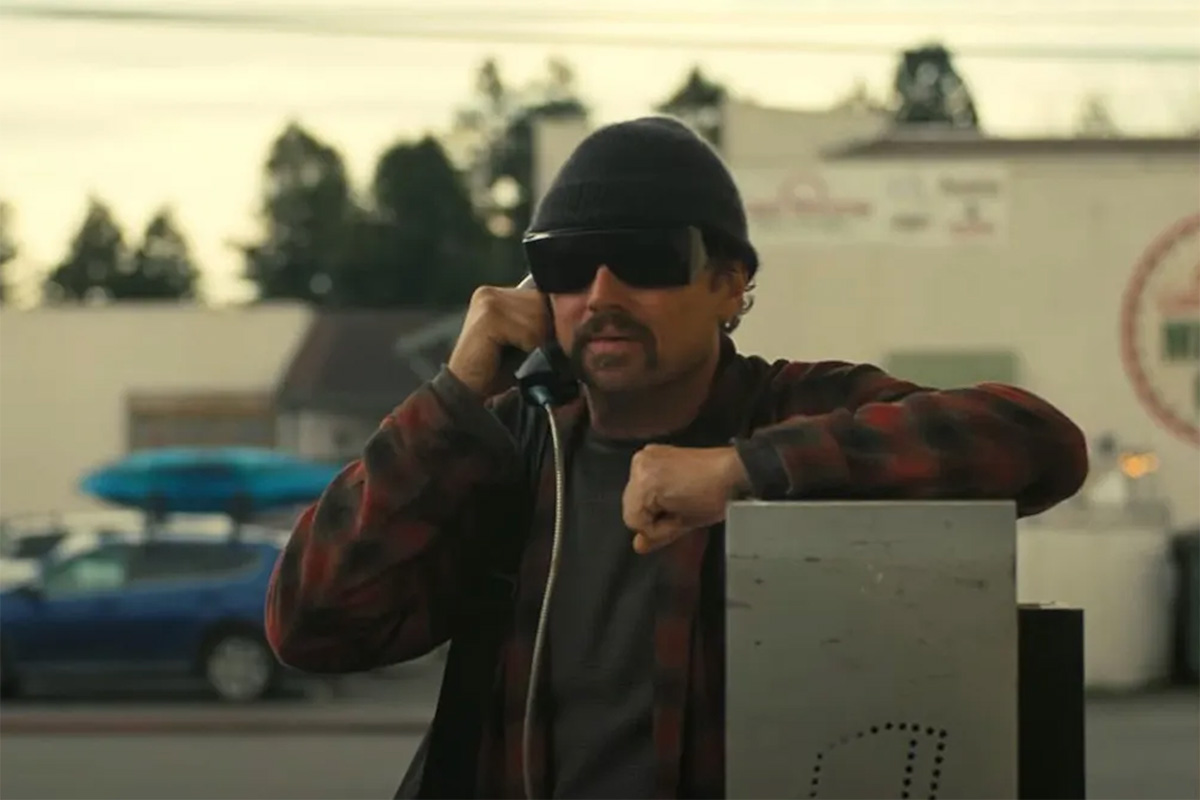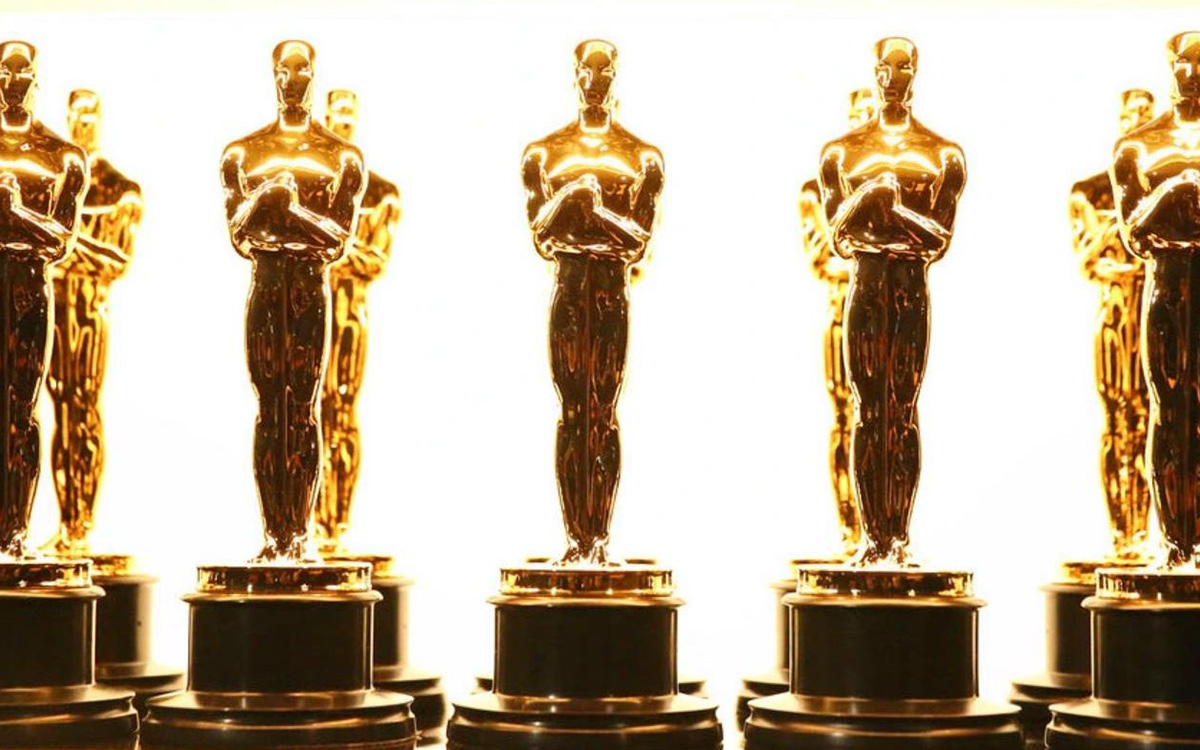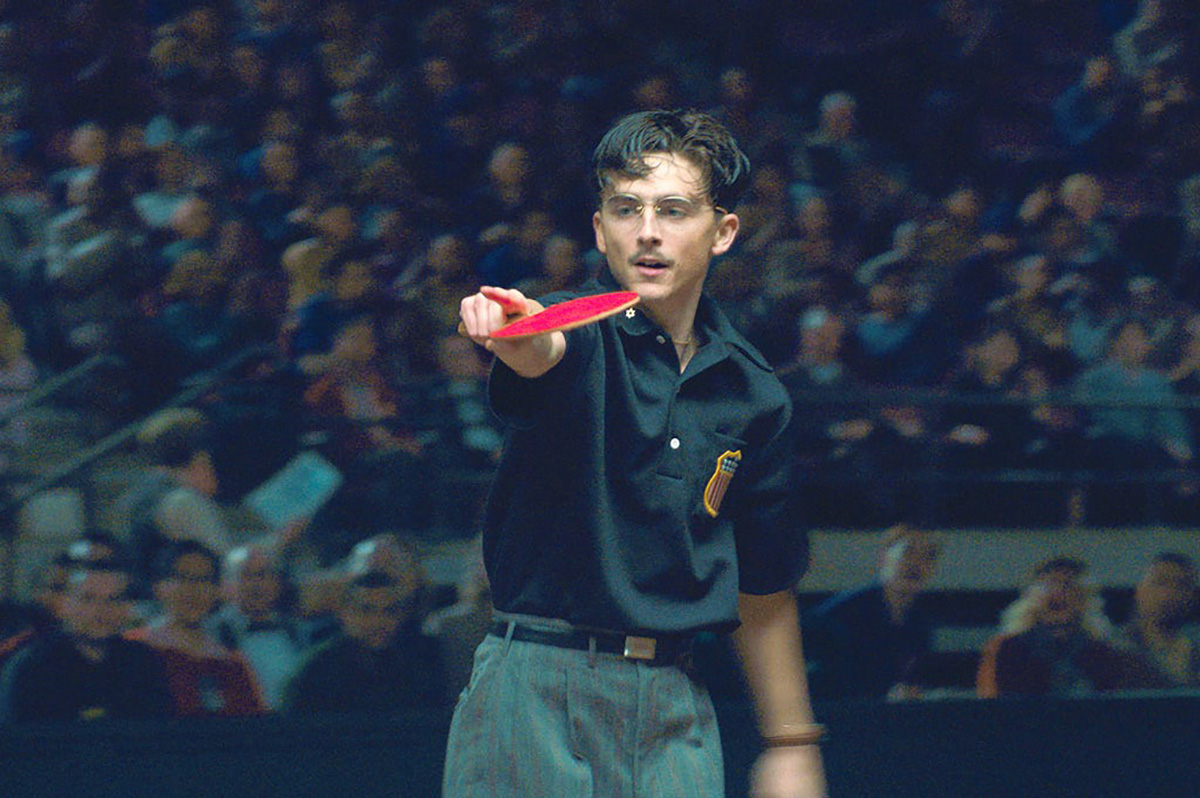Movies
Harry Styles walks queer tightrope in gloomy ‘My Policeman’
Elegant film undermined by emotionally detached visual tropes

Harry Styles seems to be everywhere these days.
The former One Direction member turned solo artist not only dropped a critically acclaimed, chart-topping album earlier this year, he turned up last month on movie screens as the leading man in “Don’t Worry Darling” – not to mention becoming a major focus of celebrity gossip on our social media feeds over the various controversies concerning the latter’s troubled production and press tour.
Now, just a few weeks later, Styles is back on the big screen again, this time in the title role of “My Policeman,” the Amazon-produced adaptation of Bethan Roberts’s 2012 novel about an intertwined relationship between a policeman, a schoolteacher, and a museum curator and the reckoning it exacts from their lives three decades later. It’s a less high-profile project than his last one (though perhaps just as controversial in some circles) but nevertheless likely to garner at least an equal amount of attention thanks to his superstar presence – especially since it gives his fans a fresh opportunity to speculate about his sexual orientation by placing him in the center of a very queer romantic triangle.
Directed by Michael Grandage from a screenplay by Ron Nyswaner, the film’s non-linear exploration of that triangle begins when aging couple Marion and Tom (Gina McKee and Linus Roach) take their former friend Patrick (Rupert Everett) into their home for care after he suffers a debilitating stroke. His arrival dredges up decades-old memories of the trio’s shared past – when a young, closeted, and conflicted Tom (Styles) courted and married a young and naïve Marion (Emma Corrin) while carrying on a secret affair with a young and deeply smitten Patrick (David Dawson) in the repressively homophobic London of the 1950s – and revives all the repressed emotions that go along with them.
As the premise for a tale of star-crossed love, it’s not exactly new territory. In an era when the need for more positive and empowering LGBTQ narratives grows more pressing each time Marjorie Taylor-Greene opens her mouth to belittle Pete Buttigieg and his family, tales of old school repression and the devil’s bargain of living safely in the closet feel more and more tired – something that undoubtedly factored into the mixed response the film elicited from audiences and critics after its debut after the Toronto International Film Festival a few weeks ago.
The movie’s approach to the material doesn’t help. Under the guidance of Grandage, a veteran of the U.K. theater scene whose emphasis on the tragic beauty of it all sets a dreary mood from which the story can never quite break free, the film leans heavily into an artsy approach, full of stylistically elegant but emotionally detached visual tropes and heavy-handed symbolism — the primal turbulence of a J.M.W. Turner painting as a metaphor for the tempestuous impulses of burgeoning queer sexuality being only one of the most obvious examples — that tends to distance us from the human authenticity of the situation rather than illuminate it for us. Likewise, the screenplay’s puzzle-box approach, in which the details of what’s REALLY going on between these protagonists become a mystery to be solved, puts more focus on the details of their triangle than on its consequences. As anyone who’s ever been forced to live a secret double life for the sake of social acceptance can surely attest, that’s a clear-cut case of missing the forest for the trees.
Still, “My Policeman” manages, despite its presentation and pretensions, to highlight a subtle truth that is often overlooked in stories about the closet; it has to do with the trickle-down effect of societal homophobia, the long-term impact of stigma and secrecy not only on queer people but on those with whom their lives become entangled, and while the movie may not match the zeitgeist of the moment, it tells a necessary story. As much as we may wish the suppression of queerness to be a thing of the past, it remains a tragic reality for many in a world where the denial of LGBTQ equality and acceptance continues to wield its insidious influence.
The presence of multiple openly queer actors among the cast plays an important role in driving home this point. Dawson, a lesser-known actor outside of the U.K., delivers a heart-rending performance as the younger Patrick, single-handedly preventing the movie from becoming lip-service to queer representation, and veteran Everett, a queer elder already ensconced as an icon for taking on groundbreaking gay roles, offers up some of the movie’s most memorable and affecting moments as the elder version of the same character; Corrin, an openly queer and non-binary performer lauded for her portrayal of Princess Diana in “The Crown,” infuses their role as the “straight” female caught in the middle of an inevitably doomed arrangement with the nuance gained from lived experience to get to the true depths of her character’s journey.
That, inevitably, brings us back to Harry Styles. It’s impossible to separate his role here — as a closeted gay man prevented by cultural expectation from embracing his truth and the fulfillment of living it without reservation — from his history of seemingly calculated vagueness about his own sexual identity. It’s an issue that becomes especially pertinent in light of the pop icon’s participation in several explicit (if not quite graphic) sex scenes, which will surely bring renewed accusations of “queer-baiting” from those who believe unequivocal representation trumps his insistence on living a life unencumbered by labels. Perhaps influenced by this viewpoint, many critics have harshly branded his performance as mannered and opaque, an enigmatic pose that undercuts both his character’s authenticity and the movie’s assertion of the toxic effects of self-obfuscation.
We respectfully disagree.
As a portrait of someone who perceives himself (not inaccurately) to be trapped on a high wire, Styles’s close-to-the-chest portrayal is dead-on. In a movie wrapped in old-school restraint, the ambiguity of his emotional truth is more honest than any self-revelatory baring-of-soul could ever be in capturing the in-the-moment experience of trying to build a life between the acceptable and the forbidden; the breakthrough moments are left to the capable Roach, when the older version of Tom is finally forced to come to terms with the choices he has made. This may leave us longing for a more definitively queer Tom in those scenes of his younger life, but it’s an artistic choice that’s arguably truer to the style — and the message — of “My Policeman” than any sentimental pandering to romantic fantasy could ever be. Beyond all that, Styles’s undeniable charisma cements the notion that his character would be such an irresistible force in the lives of his two paramours. Without it, the movie simply wouldn’t work.
In the long run, none of that may matter when it comes to questions of whether Harry Styles’s evasiveness about his sexual identity is a genuine expression of self or an effort to play to both sides of the fence. It might not even be enough to rescue the film from its self-imposed heaviness – but it might be just enough to make ‘My Policeman’ worth your attention.
Movies
A ‘Battle’ we can’t avoid
Critical darling is part action thriller, part political allegory, part satire

When Paul Thomas Anderson’s “One Battle After Another” debuted on American movie screens last September, it had a lot of things going for it: an acclaimed Hollywood auteur working with a cast that included three Oscar-winning actors, on an ambitious blockbuster with his biggest budget to date, and a $70 million advertising campaign to draw in the crowds. It was even released in IMAX.
It was still a box office disappointment, failing to achieve its “break-even” threshold before making the jump from big screen to small via VOD rentals and streaming on HBO Max. Whatever the reason – an ambivalence toward its stars, a lack of clarity around what it was about, divisive pushback from both progressive and conservative camps over perceived messaging, or a general sense of fatigue over real-world events that had pushed potential moviegoers to their saturation point for politically charged material – audiences failed to show up for it.
The story did not end there, of course; most critics, unconcerned with box office receipts, embraced Anderson’s grand-scale opus, and it’s now a top contender in this year’s awards race, already securing top prizes at the Golden Globe and Critics’ Choice Awards, nominated for a record number of SAG’s Actor Awards, and almost certain to be a front runner in multiple categories at the Academy Awards on March 15.
For cinema buffs who care about such things, that means the time has come: get over all those misgivings and hesitations, whatever reasons might be behind them, and see for yourself why it’s at the top of so many “Best Of” lists.
Adapted by Anderson from the 1990 Thomas Pynchon novel “Vineland,” “One Battle” is part action thriller, part political allegory, part jet-black satire, and – as the first feature film shot primarily in the “VistaVision” format since the early 1960s – all gloriously cinematic. It unspools a near-mythic saga of oppression, resistance, and family bonds, set in an authoritarian America of unspecified date, in which a former revolutionary (Leonardo DiCaprio) is attempting to raise his teenage daughter (Chase Infiniti) under the radar after her mother (Teyana Taylor) betrayed the movement and fled the country. Now living under a fake identity and consumed by paranoia and a weed habit, he has grown soft and unprepared when a corrupt military officer (Sean Penn) – who may be his daughter’s real biological father – tracks them down and apprehends her. Determined to rescue her, he reconnects with his old revolutionary network and enlists the aid of her karate teacher (Benicio Del Toro), embarking on a desperate rescue mission while her captor plots to erase all traces of his former “indiscretion” with her mother.
It’s a plot straight out of a mainstream action melodrama, top-heavy with opportunities for old-school action, sensationalistic violence, and epic car chases (all of which it delivers), but in the hands of Anderson – whose sensibilities always strike a provocative balance between introspection, nostalgia, and a sense of apt-but-irreverent destiny – it becomes much more intriguing than the generic tropes with which he invokes to cover his own absurdist leanings.
Indeed, it’s that absurdity which infuses “One Battle” with a bemusedly observational tone and emerges to distinguish it from the “action movie” format it uses to relay its narrative. From DiCaprio (whose performance highlights his subtle comedic gifts as much as his “serious” acting chops) as a bathrobe-clad underdog hero with shades of The Dude from the Coen Brothers’ “The Big Liebowski,” to the uncomfortably hilarious creepy secret society of financially elite white supremacists that lurks in the margins of the action, Anderson gives us plenty of satirical fodder to chuckle about, even if we cringe as we do it; like that masterpiece of too-close-to-home political comedy, Stanley Kubrick’s 1964 nuclear holocaust farce “Dr. Strangelove,” it offers us ridiculousness and buffoonery which rings so perfectly true in a terrifying reality that we can’t really laugh at it.
That, perhaps, is why Anderson’s film has had a hard time drawing viewers; though it’s based on a book from nearly four decades ago and it was conceived, written, and created well before our current political reality, the world it creates hits a little too close to home. It imagines a roughly contemporary America ruled by a draconian regime, where immigration enforcement, police, and the military all seem wrapped into one oppressive force, and where unapologetic racism dictates an entire ideology that works in the shadows to impose its twisted values on the world. When it was conceived and written, it must have felt like an exaggeration; now, watching the final product in 2026, it feels almost like an inevitability. Let’s face it, none of us wants to accept the reality of fascism imposing itself on our daily lives; a movie that forces us to confront it is, unfortunately, bound to feel like a downer. We get enough “doomscrolling” on social media; we can’t be faulted for not wanting more of it when we sit down to watch a movie.
In truth, however, “One Battle” is anything but a downer. Full of comedic flourish, it maintains a rigorous distance that makes it impossible to make snap judgments about its characters, and that makes all the difference – especially with characters like DiCaprio’s protective dad, whose behavior sometimes feels toxic from a certain point of view. And though it’s a movie which has no qualms about showing us terrifying things we would rather not see, it somehow comes off better in the end than it might have done by making everything feel safe.
“Safe” is something we are never allowed to feel in Anderson’s outlandish action adventure, even at an intellectual level; even if we can laugh at some of its over-the-top flourishes or find emotional (or ideological) satisfaction in the way things ultimately play out, we can’t walk away from it without feeling the dread that comes from recognizing the ugly truths behind its satirical absurdities. In the end, it’s all too real, too familiar, too dire for us not to be unsettled. After all, it’s only a movie, but the things it shows us are not far removed from the world outside our doors. Indeed, they’re getting closer every day.
Visually masterful, superbly performed, and flawlessly delivered by a cinematic master, it’s a movie that, like it or not, confronts us with the discomforting reality we face, and there’s nobody to save it from us but ourselves.
Movies
Few openly queer nominees land Oscar nominations
‘Sinners’ and ‘One Battle After Another’ lead the pack

This year’s Oscar nominees feature very few openly queer actors or creatives, with “KPop Demon Hunters,” “Come See Me in the Good Light,” and “Elio” bringing some much-needed representation to the field.
“KPop Demon Hunters,” which quickly became a worldwide sensation after releasing on Netflix last June, was nominated for best animated feature film and best original song for “Golden,” the chart-topping hit co-written by openly queer songwriter Mark Sonnenblick. “Come See Me in the Good Light,” a film following the late Andrea Gibson and their wife, Megan Falley, was nominated in the best documentary feature category. Finally, Pixar’s “Elio” (co-directed by openly queer filmmaker Adrian Molina) was nominated for best animated feature film alongside “Zootopia 2,” “Arco,” and “Little Amélie or the Character of Rain.”
Ethan Hawke did manage to land a best actor nomination for his work in Richard Linklater’s “Blue Moon,” a biopic that follows a fatal night in Lorenz Hart’s life as he reckons with losing his creative partner, Richard Rodgers. Robert Kaplow was also nominated for best original screenplay for penning the script. Amy Madigan, as expected, was recognized in the best supporting actress category for her work in “Weapons,” bringing celebrated gay icon Aunt Gladys to the Oscar stage.
While “Wicked: For Good” was significantly underperforming throughout the season, with Cynthia Erivo missing key nominations and the film falling squarely out of the best picture race early on, most pundits expected the film to still receive some recognition in craft categories. But in perhaps the biggest shock of Oscar nomination morning, “For Good” received zero nominations — not even for costume design or production design, the two categories in which the first film won just last year. Clearly, there was “Wicked” fatigue across the board.
There was also reasonable hope that Eva Victor’s acclaimed directorial debut, “Sorry, Baby,” would land a best original screenplay nod, especially after Julia Roberts shouted out Victor during the recent Golden Globes (which aired the day before Oscar voting started). A24, the studio that distributed “Sorry, Baby” in the U.S., clearly prioritized campaigns for “Marty Supreme” (to much success) and Rose Byrne in “If I Had Legs I’d Kick You,” leaving “Sorry, Baby” the indie darling that couldn’t quite crack the Oscar race.
However, with the Film Independent Spirit Awards taking place on Feb. 15, queer films like “Sorry, Baby,” “Peter Hujar’s Day,” and “Twinless” will finally get their time to shine. Maybe these films were just underseen, or not given a big enough PR push, but regardless, it’s unfortunate that the Academy couldn’t make room for just one of these when “Emilia Pérez” managed 13 nominations last year.
Movies
Rise of Chalamet continues in ‘Marty Supreme’
But subtext of ‘American Exceptionalism’ sparks online debate

Casting is everything when it comes to making a movie. There’s a certain alchemy that happens when an actor and character are perfectly matched, blurring the lines of identity so that they seem to become one and the same. In some cases, the movie itself feels to us as if it could not exist without that person, that performance.
“Marty Supreme” is just such a movie. Whatever else can be said about Josh Safdie’s wild ride of a sports comedy – now in theaters and already racking up awards – it has accomplished exactly that rare magic, because the title character might very well be the role that Timothée Chalamet was born to play.
Loosely based on real-life table tennis pro Marty Reisman, who published his memoir “The Money Player” in 1974, this Marty (whose real surname is Mauser) is a first-generation American, a son of Jewish immigrant parents in post-WWII New York who works as a shoe salesman at his uncle’s store on the Lower East Side while building his reputation as a competitive table tennis player in his time off. Cocky, charismatic, and driven by dreams of championship, everything else in his life – including his childhood friend Rachel (Odessa A’zion), who is pregnant with his baby despite being married to someone else – takes a back seat as he attempts to make them come true, hustling every step of the way.
Inevitably, his determination to win leads him to cross a few ethical lines as he goes – such as stealing money for travel expenses, seducing a retired movie star (Gwyneth Paltrow), wooing her CEO husband (Kevin O’Leary) to sponsor him, and running afoul of the neighborhood mob boss (veteran filmmaker Abel Ferrara) – and a chain of consequences piles at his heels, threatening to undermine his success before it even has a chance to happen.
Filmed in 35mm and drenched in the visual style of the gritty-but-gorgeous “New Hollywood” cinema that Safdie – making his solo directorial debut without the collaboration of his brother Benny – so clearly seeks to evoke, “Marty Supreme” calls up unavoidable connections to the films of that era with its focus on an anti-hero protagonist trying to beat the system at its own game, as well as a kind of cynical amorality that somehow comes across more like a countercultural call-to-arms than a nihilistic social commentary. It’s a movie that feels much more challenging in the mid-2020s than it might have four or so decades ago, building its narrative around an ego-driven character who triggers all our contemporary progressive disdain; self-centered, reckless, and single-mindedly committed to attaining his own goals without regard for the collateral damage he inflicts on others in the process, he might easily – and perhaps justifiably – be branded as a classic example of the toxic male narcissist.
Yet to see him this way feels simplistic and reductive, a snap value judgment that ignores the context of time and place while invoking the kind of ethical purity that can easily blind us to the nuances of human behavior. After all, a flawed character is always much more authentic than a perfect one, and Marty Mauser is definitely flawed.
Yet in Chalamet’s hands, those flaws become the heart of a story that emphasizes a will to transcend the boundaries imposed by the circumstantial influences of class, ethnicity, and socially mandated hierarchy. His Marty is a person forging an escape path in a world that expects him to “know his place,” who is keenly aware of the anti-semitism and cultural conventions that keep him locked into a life of limited possibilities and who is willing to do whatever it takes to break free of them; and though he might draw our disapproval for the choices he makes, particularly with regard to his relationship with Rachel, he grows as he goes, navigating a character arc that is less interested in redemption for past sins than it is in finding the integrity to do better the next time – and frankly, that’s something that very few toxic male narcissists ever do.
In truth, it’s not surprising that Chalamet nails the part, considering that it’s the culmination of a project that began in 2018, when Safdie gave him Reisman’s book and suggested collaborating on a movie based on the story of his rise to success. The actor began training in table tennis, and continued to master it over the years, even bringing the necessary equipment to location shoots for movies like “Dune” so that he could perfect his skills – but physical skill aside, he always had what he needed to embody Marty. This is a character who knows what he’s got and is not ashamed to use it, who has the drive to succeed, the will to excel, and the confidence to be unapologetically himself while finding joy in the exercise of his talents, despite how he might be judged by those who see only ego. If any actor could be said to reflect those qualities, it’s Timothée Chalamet.
Other members of the cast also score deep impressions, especially A’zion, whose Rachel avoids tropes of victimhood to achieve her own unconventional character arc. Paltrow gives a remarkably vulnerable turn as the aging starlet who willingly allows Marty into her orbit despite the worldliness that tells her exactly what she’s getting into, while O’Leary embodies the kind of smug corporate venality that instantly positions him as the avatar for everything Marty is trying to escape. Queer fan-fave icons Fran Drescher and Sandra Bernhard also make small-but-memorable appearances, and real-life deaf table tennis player Koto Kawaguchi strikes a noble chord as the Japanese champion who becomes Marty’s de facto rival.
As for Safdie’s direction, it’s hard to find anything to criticize in his film’s visually stylish, sumptuously photographed (by Darius Khondji), and tightly paced delivery, which makes its two-and-a-half hour runtime fly by without a moment of drag.
It must be said that the screenplay – co-written by Safdie with Ronald Bronstein – leans heavily into an approach in which much of the plot hinges on implausible coincidences, ironic twists, and a general sense of orchestrated chaos that makes things occasionally feel a little too neat in the service of creating an outlandish “tall tale” narrative ; but let’s face it, life is like that sometimes, so it’s easy to overlook.
What might be more problematic, for some audiences, is Marty’s often insufferable – and occasionally downright ugly behavior. Yes, Chalamet infuses it all with humanizing authenticity, and the story is ultimately more about the character’s emotional evolution than it is about his winning at ping-pong, but it’s impossible not to read a subtext of American Exceptionalism into his winner-takes-all climb to victory – which is why “Marty Supreme,” for all its critical acclaim, is the subject of heated debate and outrage on social media right now.
As for us, we’re not condoning anything Marty does or says as he hustles his way to the winner’s circle. All we’re saying is that Timothée Chalamet has become an even better actor since he captured our attention (and a lot of gay hearts) in “Call Me By Your Name.”
And that’s saying a lot, because he was pretty great, even then.
-

 World5 days ago
World5 days agoCompanies participate in ‘Pride on the Promenade’ at World Economic Forum
-

 Movies5 days ago
Movies5 days agoFew openly queer nominees land Oscar nominations
-

 Minnesota4 days ago
Minnesota4 days agoLawyer representing Renee Good’s family speaks out
-

 District of Columbia4 days ago
District of Columbia4 days agoJudge denies D.C. request to dismiss gay police captain’s anti-bias lawsuit


















